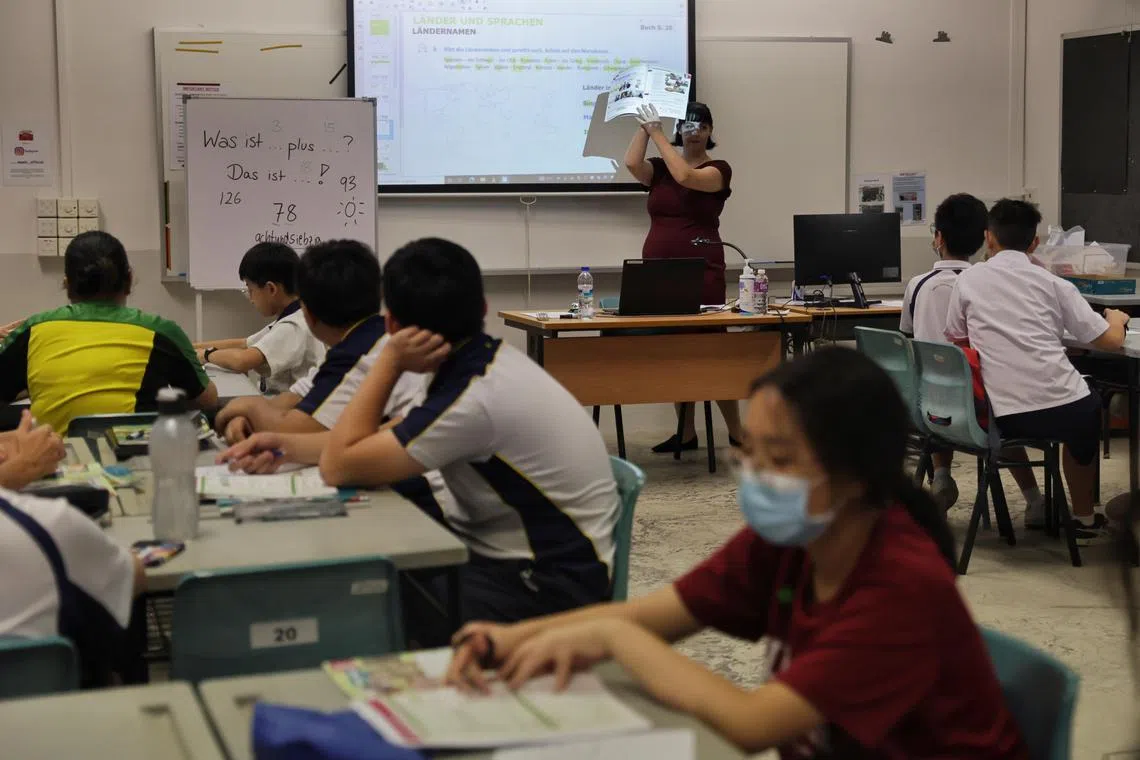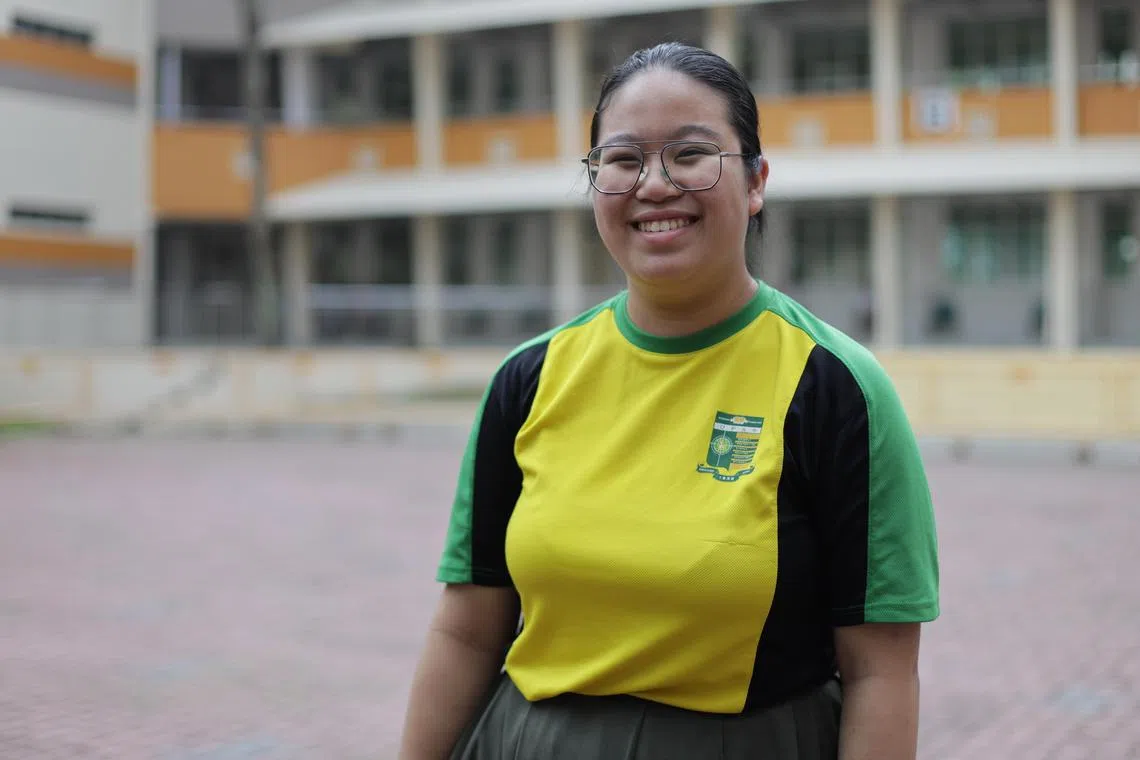120 secondary school students learning French or German in third language pilot by MOE
Sign up now: Get tips on how to help your child succeed

German language teacher Sophie Sager conducting a class at the MOE Language Centre in Newton.
ST PHOTO: GIN TAY
SINGAPORE – Since July, 120 students from 21 secondary schools have been learning French or German as a third language, as part of efforts by the Ministry of Education (MOE)
They took up the modular third language programme, which is being piloted to allow students to pursue their interest at their own pace.
They can pick up the language at different proficiency levels and “stack” modules towards an internationally recognised certificate.
The programme is open to all Secondary 1 to 3 students from the pilot schools. In response to queries, the MOE said about 1,500 students applied for the first run of the Level 1 French and German modules.
They were selected by computerised balloting with priority given to Singapore citizens and the applicant’s first choice.
Through eight-week modules conducted across the school year, students can start, stop and resume their learning in between terms to better fit their schedules and level of interest.
This is unlike the existing Third Language Programme that has a full curriculum, and students take the language as part of their suite of O- or A-level subjects. Eight languages are offered under this programme including French, Japanese and Arabic.
Under the pilot, the French and German lessons are conducted in partnership with the Alliance Française de Singapour and Goethe-Institut Singapore respectively. Lessons are fully subsidised, but the students have to pay for learning materials.
Given the response, MOE said it will explore increasing the intake for the Level 1 French and German modules in 2024. Higher-level modules will be made available from 2024.
The MOE spokesman said it will study the implementation of the pilot to see if it is feasible to expand the programme to more schools and languages such as Spanish and Japanese.
Students who have completed the first six modules would have attained the proficiency required of the Common European Framework of Reference for Languages A1 level certificate (CEFR). Those keen can register for the examination to obtain the certification.
The CEFR is an international standard that describes language ability on a six-point scale – from A1 to C2 – with A1 for beginners.
Orchid Park Secondary School student Teo En Hui, 15, took up German as part of the pilot. “I’ve been reading fairy tales since I was young and many of them were originally written in German… so I thought maybe if I learn German, I could read those stories in their original language to appreciate the nuances better,” she said.
Every Monday, the Secondary 3 student took public transport from her school in Yishun to the MOE Language Centre in Newton for the two-hour class. Her last session in the Level 1 module was on Monday this week.
“My schedule is very packed, but I felt it was a rare opportunity to learn a new language. It’s a stepping stone to learning other languages,” she said, adding that she started using Duolingo, an app to learn basic Japanese and Arabic.

Orchid Park Secondary School student Teo En Hui took up German as part of the pilot.
ST PHOTO: GIN TAY
“I hope to go to Germany in future to visit their museums and war memorials as I’m also interested in history. I like to know more about different cultures and languages are a way to access that,” said En Hui.
Taking German in this format was manageable and not stressful, she noted, as there were no examinations.
“There were assignments, but it was at the right pace and not too much to overwhelm you,” she added.
Peicai Secondary School student Faiqah Hutami Nastiti Ridzuan, 14, also took German during the pilot after getting to know some German friends in 2022.
“I met them on social media platform Discord while playing games and we met up in real life,” said the Secondary 2 student. “We speak in English mostly, but when they switch to German, I would not understand anything. They don’t know I started learning German and I’m hoping to surprise them.”
“My impression of German was that it sounded a bit harsh and has a lot of hard consonants, but after learning it, I realised it has both hard and soft sounds.”
She hopes to take more modules in the language in 2024. “I like that we get to interact with students from other schools and can make new friends. It doesn’t matter which school we come from, we bond over our common interest in the language,” she added.



